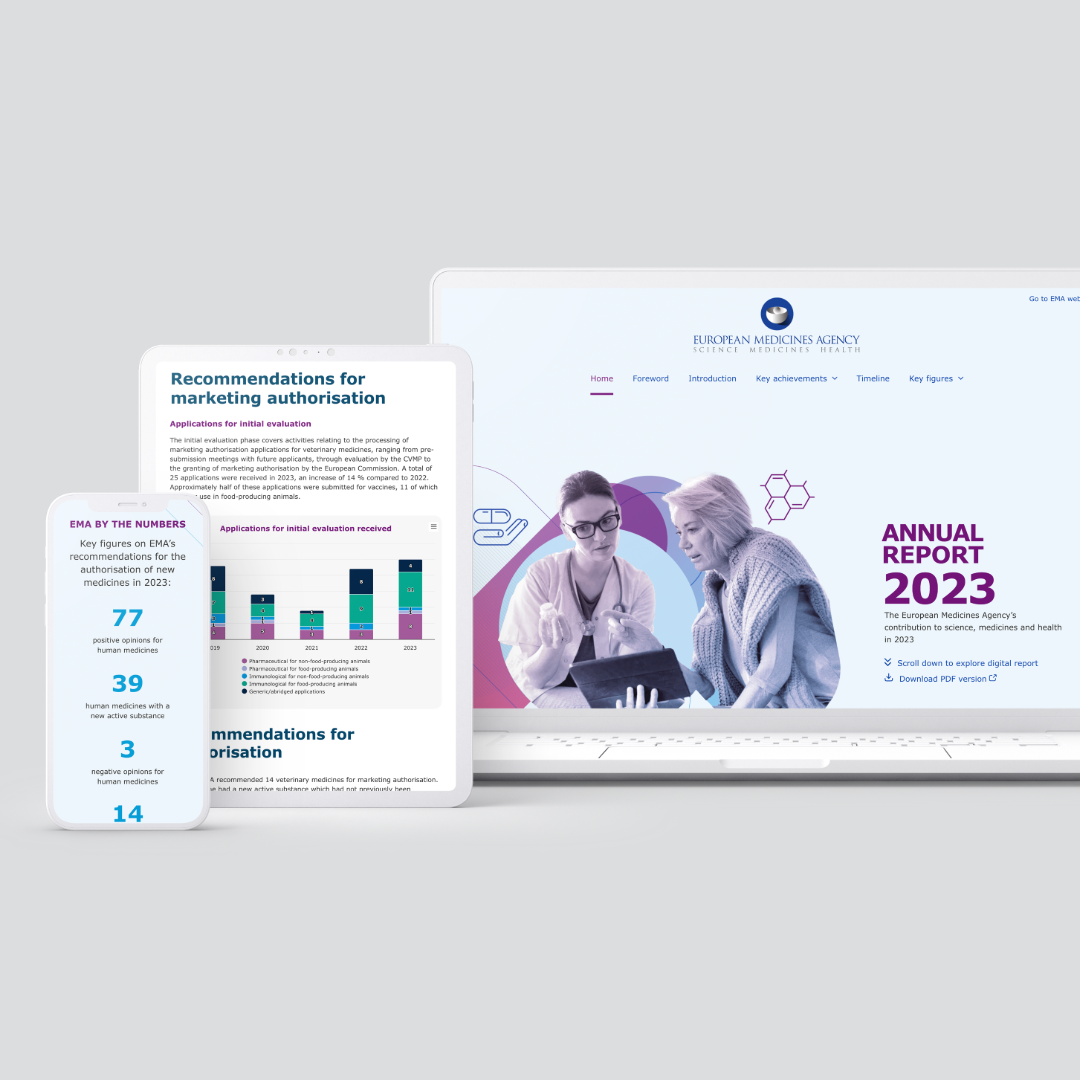
EMA’s annual report 2023 published today details the Agency’s contributions to public and animal health in the European Union (EU). With a fresh layout and new interactive features, the report offers insights into EMA's strategic initiatives and priority areas that guided its work in 2023.
The redesigned report outlines the highlights in the evaluation and monitoring of human and veterinary medicines and key achievements in EMA’s three major strategic areas in 2023: cancer medicines, data-driven medicine regulation, and transparency and communication. It also contains a selection of key figures and interesting trends that illustrate the broader work of EMA and its impact. The digital version of the report allows users to filter and interact with the data. Its responsive design eases the navigation on all devices, including smartphones and tablets. The report, however, is also available in the traditional, print-ready version in PDF format.
In 2023, EMA recommended the authorisation of 77 medicines for human use, including 39 with a new active substance. Many of these treatments represented significant progress in their therapeutic areas. Two vaccines to protect against lower respiratory tract disease caused by respiratory syncytial virus (RSV) received a positive opinion from EMA’s human medicines committee (CHMP) for approval in the EU. EMA also recommended for approval the first advanced therapy medicinal product using the ground-breaking gene-editing technology known as CRISPR/Cas9 to treat two rare blood disorders (beta thalassemia and severe sickle cell disease). In addition, the Agency adopted two positive opinions for medicines for use in countries outside the EU.
In the area of veterinary medicines, EMA recommended 14 medicines for marketing authorisation. Of these, nine had a new active substance – a threefold increase compared to 2022. Nine were vaccines, including six new biotechnological vaccines.
In 2023, the Agency launched a new initiative, called ‘Cancer Medicines Pathfinder’, to further support the development and approval of cancer medicines which could have a meaningful impact on patient care. This initiative explores how EMA can improve medicines evaluation overall, applying the learnings from the COVID-19 pandemic. The report outlines the progress with the Cancer Medicines Pathfinder and its three pillars: accelerating assessments of medicines, strengthening dialogue with stakeholders, and communicating benefits and risks.
Understanding how we can efficiently analyse and use data to inform medicines regulation was a key priority for the Agency and the European medicines regulatory network in 2023. It is important to ensure that the EU regulatory system can take advantage of the full potential of data. The report highlights EMA’s significant progress around the use of data to drive innovation and regulation of medicines.
Building trust in medicines regulation through transparency and communication is also an important priority for EMA. The report draws attention to the Agency’s strengthened efforts to provide European citizens with timely, accurate and comprehensive information on medicines via EMA’s corporate website, social media channels and traditional media. It also describes how EMA’s communications activities supported the focus areas outlined in the European medicines agencies network strategy to 2025 and the Regulatory Science Strategy to 2025.
The second chapter of the report is dedicated to core statistics and trends illustrating the Agency’s activities in the regulation of medicines. More detailed statistical information about EMA can be found in the Agency’s annual activity report.